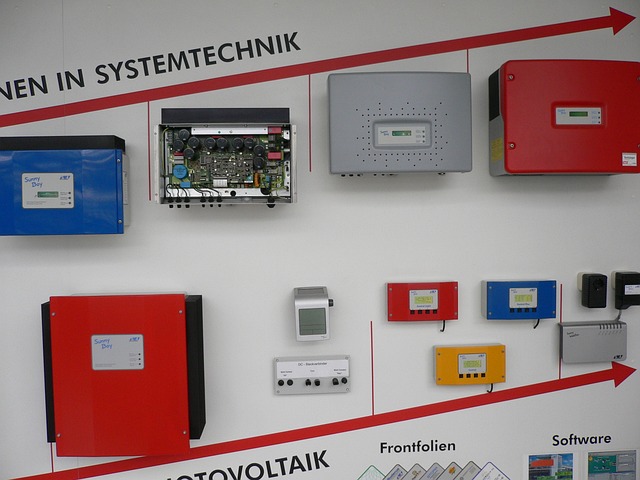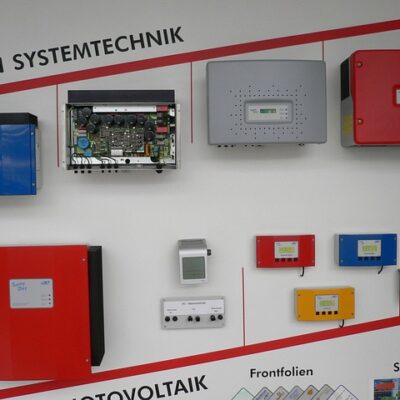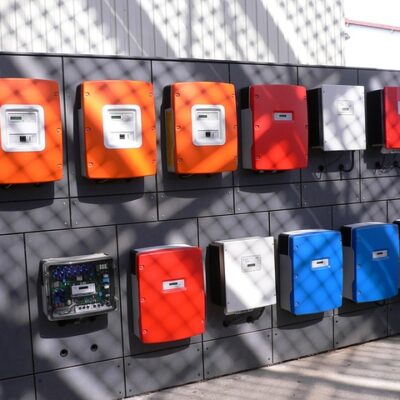Solar Inverter Consulting, Sales & Installation
We consult, sell, install and maintain solar inverters in Nigeria & Africa
Solar Inverters Sales & Installation
Global Locations
Phone: +234 808 0888 162
Email: [email protected]
Address: 17/21, Akinsanya Street, Ojodu Berger, Lagos.
Hours: Mon-Fri: 9am – 4pm
Email: [email protected]
Address: 17/21, Akinsanya Street, Ojodu Berger, Lagos.
Hours: Mon-Fri: 9am – 4pm
Download Brochure
Our Service To You
With Ground Zero Africa Industries' renewable energy solutions, you can successfully switch to clean and sustainable energy with our comprehensive solar inverter solutions.
Our experienced team specializes in the sales, installation, and maintenance of top-quality solar inverters, so you can enjoy lower energy costs, reduced carbon footprints, and experience reliable power supply.
Embrace the future of energy with our trusted solar inverter products and services which can be deployed anywhere in Nigeria or Africa.
Our experienced team specializes in the sales, installation, and maintenance of top-quality solar inverters, so you can enjoy lower energy costs, reduced carbon footprints, and experience reliable power supply.
Embrace the future of energy with our trusted solar inverter products and services which can be deployed anywhere in Nigeria or Africa.

What is A Solar Inverter?
A solar inverter, also known as a photovoltaic (PV) inverter, is an essential component of a solar power system. Its primary function is to convert the direct current (DC) electricity generated by solar panels into alternating current (AC) electricity that can be used to power household appliances, businesses, and feed into the electrical grid.
Solar panels generate DC electricity when exposed to sunlight. However, most electrical devices and the power grid operate on AC electricity. The solar inverter bridges this gap by converting the DC power from the solar panels into AC power, which is compatible with standard electrical systems.
The solar inverter performs several key functions:
1). Conversion: It converts the variable DC voltage generated by the solar panels into a stable AC voltage suitable for powering appliances and equipment.
2). Synchronization: In grid-connected systems, the inverter synchronizes the generated electricity with the utility grid's frequency and voltage, allowing excess power to be fed back into the grid.
3). Maximum Power Point Tracking (MPPT): Many solar inverters incorporate MPPT technology to optimize the solar panel's output by tracking and adjusting the panel's operating point to maximize power production under changing sunlight conditions.
4). Safety and Protection: Solar inverters incorporate safety mechanisms to protect the system from voltage fluctuations, overvoltage, overcurrent, and ground faults. They also ensure the system shuts down in the event of a power outage to protect utility workers.
Solar inverters come in different types, including string inverters, microinverters, and power optimizers. String inverters are commonly used in residential and small commercial installations, where multiple solar panels are connected in series. Microinverters or power optimizers are used in systems where each solar panel has its dedicated inverter, offering greater system performance monitoring and shading tolerance.
The choice of solar inverter depends on various factors, including system size, installation location, shading conditions, and budget. Selecting the right solar inverter is crucial to optimize the solar system's performance, efficiency, and reliability.
A solar inverter, also known as a photovoltaic (PV) inverter, is an essential component of a solar power system. Its primary function is to convert the direct current (DC) electricity generated by solar panels into alternating current (AC) electricity that can be used to power household appliances, businesses, and feed into the electrical grid.
Solar panels generate DC electricity when exposed to sunlight. However, most electrical devices and the power grid operate on AC electricity. The solar inverter bridges this gap by converting the DC power from the solar panels into AC power, which is compatible with standard electrical systems.
The solar inverter performs several key functions:
1). Conversion: It converts the variable DC voltage generated by the solar panels into a stable AC voltage suitable for powering appliances and equipment.
2). Synchronization: In grid-connected systems, the inverter synchronizes the generated electricity with the utility grid's frequency and voltage, allowing excess power to be fed back into the grid.
3). Maximum Power Point Tracking (MPPT): Many solar inverters incorporate MPPT technology to optimize the solar panel's output by tracking and adjusting the panel's operating point to maximize power production under changing sunlight conditions.
4). Safety and Protection: Solar inverters incorporate safety mechanisms to protect the system from voltage fluctuations, overvoltage, overcurrent, and ground faults. They also ensure the system shuts down in the event of a power outage to protect utility workers.
Solar inverters come in different types, including string inverters, microinverters, and power optimizers. String inverters are commonly used in residential and small commercial installations, where multiple solar panels are connected in series. Microinverters or power optimizers are used in systems where each solar panel has its dedicated inverter, offering greater system performance monitoring and shading tolerance.
The choice of solar inverter depends on various factors, including system size, installation location, shading conditions, and budget. Selecting the right solar inverter is crucial to optimize the solar system's performance, efficiency, and reliability.
Key Questions & Answers
Some of the key questions and answers you may need are below:
Our trade process spreads across CIF and FOB depending on the buyer's preference.
Here's what they entail:
1). Ex Works:
Ex Works means that the seller shall deliver the goods as soon as they are made available to the buyer at the seller's premises or other designated premises (e.g. factory, plant, warehouse, etc.). The seller shall not be obligated to load the goods onto a collecting vehicle or to clear the products for export.
2). Cost Insurance and Freight (CIF): Here, the seller will handle everything from loading the vessel, paying for insurance, and sending the product to wherever the buyer wants it delivered.
3). Freight On Board (FOB): Here, the seller pays for the transportation of the goods to the port of shipment, plus loading costs, while the buyer pays the cost of marine freight transport, insurance, unloading, and transportation from the originating port to the final destination.
Here's what they entail:
1). Ex Works:
Ex Works means that the seller shall deliver the goods as soon as they are made available to the buyer at the seller's premises or other designated premises (e.g. factory, plant, warehouse, etc.). The seller shall not be obligated to load the goods onto a collecting vehicle or to clear the products for export.
2). Cost Insurance and Freight (CIF): Here, the seller will handle everything from loading the vessel, paying for insurance, and sending the product to wherever the buyer wants it delivered.
3). Freight On Board (FOB): Here, the seller pays for the transportation of the goods to the port of shipment, plus loading costs, while the buyer pays the cost of marine freight transport, insurance, unloading, and transportation from the originating port to the final destination.

We Are Ready To Take Your Order
We ensure that the most critical industrial raw materials ranging from ithium ores like spodumene, lepidolite and amblygonite to the supply of tantalite, silica sand and much more commodities required for manufacturing in the renewable energy space, are delivered on time, every time. We also ensure that we deliver the most efficient and powerful renewable energy solutions to our clients for their vast array of projects
Quick Contact
If you have any questions or need help, please contact our team.
17/21, Akinsanya Street, Ojodu Berger, Lagos, Nigeria
Become A Partner
©2023 Ground Zero Africa Industries, All Rights Reserved.




